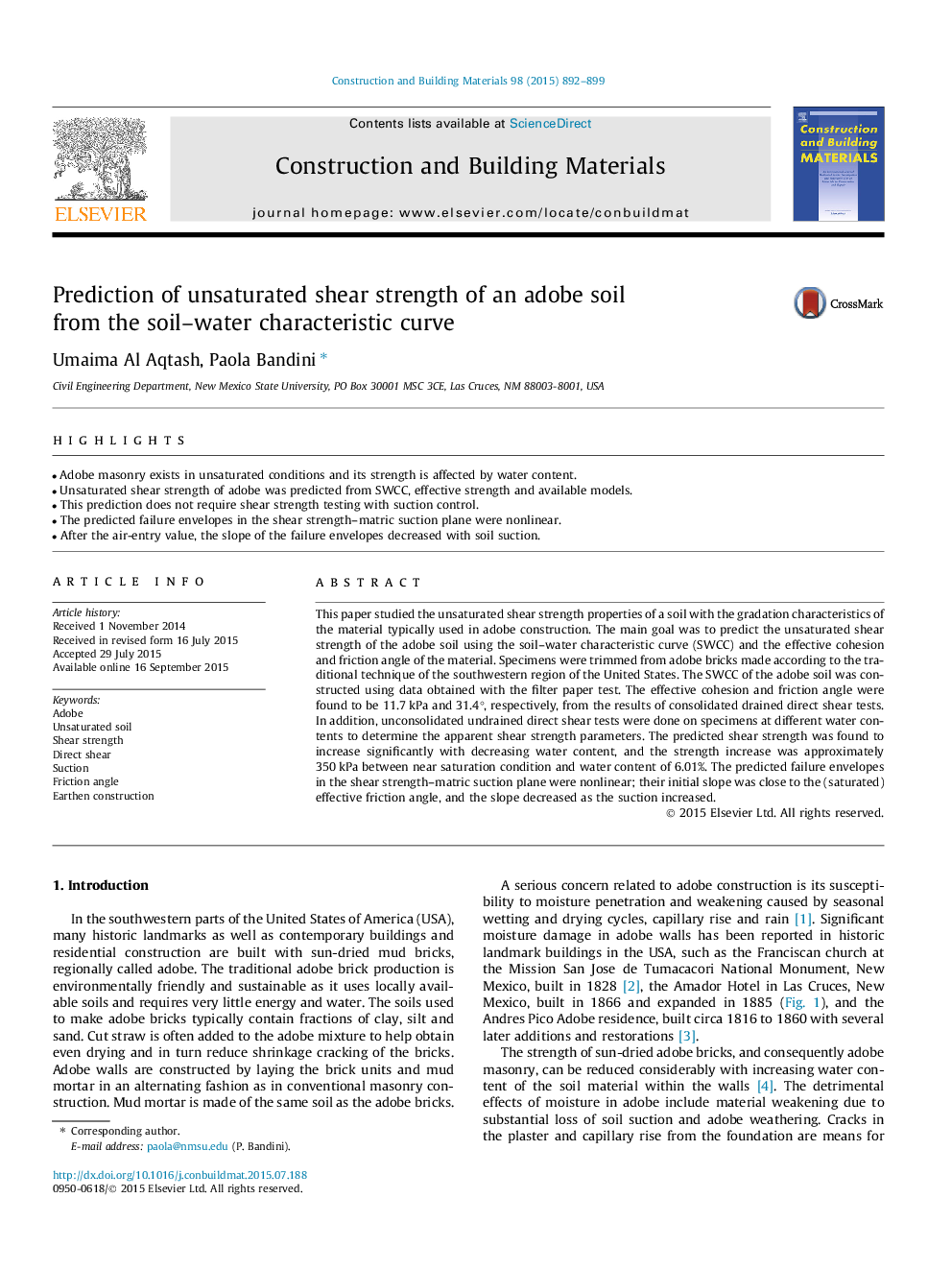| Article ID | Journal | Published Year | Pages | File Type |
|---|---|---|---|---|
| 256661 | Construction and Building Materials | 2015 | 8 Pages |
•Adobe masonry exists in unsaturated conditions and its strength is affected by water content.•Unsaturated shear strength of adobe was predicted from SWCC, effective strength and available models.•This prediction does not require shear strength testing with suction control.•The predicted failure envelopes in the shear strength–matric suction plane were nonlinear.•After the air-entry value, the slope of the failure envelopes decreased with soil suction.
This paper studied the unsaturated shear strength properties of a soil with the gradation characteristics of the material typically used in adobe construction. The main goal was to predict the unsaturated shear strength of the adobe soil using the soil–water characteristic curve (SWCC) and the effective cohesion and friction angle of the material. Specimens were trimmed from adobe bricks made according to the traditional technique of the southwestern region of the United States. The SWCC of the adobe soil was constructed using data obtained with the filter paper test. The effective cohesion and friction angle were found to be 11.7 kPa and 31.4°, respectively, from the results of consolidated drained direct shear tests. In addition, unconsolidated undrained direct shear tests were done on specimens at different water contents to determine the apparent shear strength parameters. The predicted shear strength was found to increase significantly with decreasing water content, and the strength increase was approximately 350 kPa between near saturation condition and water content of 6.01%. The predicted failure envelopes in the shear strength–matric suction plane were nonlinear; their initial slope was close to the (saturated) effective friction angle, and the slope decreased as the suction increased.
